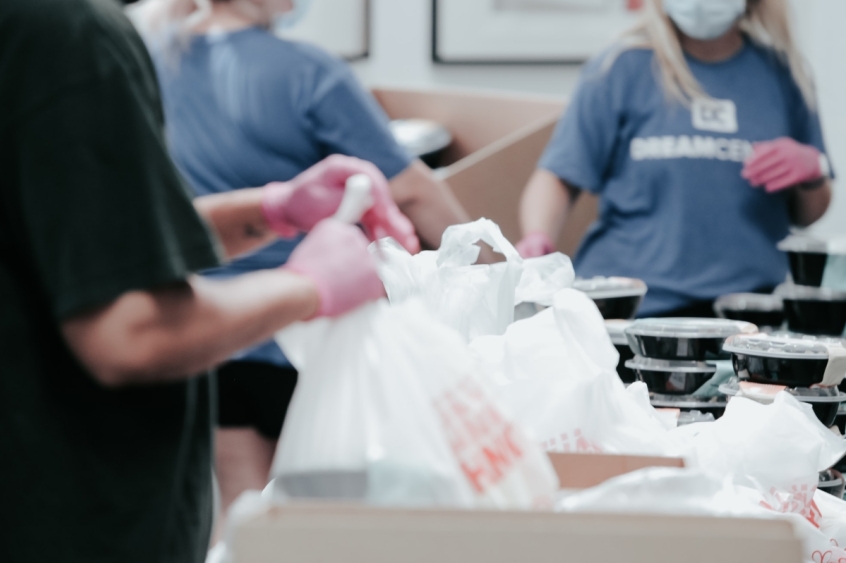
Churches have been busy during the lockdown providing vital help to their communities, a study by Christians Against Poverty (CAP) has shown.
In the survey of 175 churches that run debt centres with the charity, 96% said they had been giving practical support to their communities during lockdown.
Nearly nine in ten (87%) said they were working directly in the community to help people while a further 9% had supported initiatives at other churches. Seven in ten (71%) said they were working to support community-wide initiatives in their area.
The church outreach was made possible by an army of 3,700 volunteers who together offered over 9,000 hours of voluntary work each week, covering 6,564 households since the start of the pandemic.
Acts of kindness have included delivering food parcels, running shopping and prescription deliveries, making phone calls to isolated individuals, and offering bereavement support.
One congregation in the North-East pulled together to buy a new washing machine for a vulnerable person in their network when theirs broke down during lockdown, while in Brighton, one church has delivered 280 brunches and 280 hot dinners every day to local homeless people.
A Portsmouth church organised gift hampers for new mothers in the local hospital unable to receive visitors because of social distancing, while in the South East, one youth group set up a shopping service to ensure elderly and vulnerable people didn't have to queue outside supermarkets.
In addition to practical help, 85% of the churches surveyed said they had offered emotional support, with nearly half saying they had given help to families dealing with the added pressure of children at home.
"Far from the Church being closed, this survey shows that congregations have been energised and mobilised in a way we've just not seen before," said the charity's Chief Executive Paula Stringer.
"The buildings may have been closed to public worship but the Church community has been incredibly busy meeting the needs of the people in their locality, often despite their own personal challenges."
She added: "It's been exciting but it's also been very full-on - a lot of bereavement, a lot of looking after some very vulnerable, hurting people."
CAP has also been supporting its debt clients. After launching an appeal, it has provided £20,000 in food, phone and fuel top-ups to ensure clients do not go hungry or without hot water, and are able to call others for assistance or company.
Help has also gone out to donors who have themselves been struggling during lockdown.
"Our teams have been calling donors to ask if they wanted prayer or if there was anything they could do to help and, by doing so, have found elderly people without access to food or feeling very lonely and have been able to connect them with local churches or help from their local council," Paula said.
She added: "The narrative about closed churches has been frustrating. The perception is that the building is the church. Actually, Christians believe something a bit different. We believe that the people are the church, we are the living stones if you like, and the building is the special place where we usually meet. It is our experience that the real Church has had its arms wide open."













